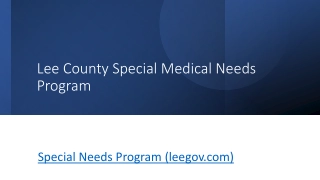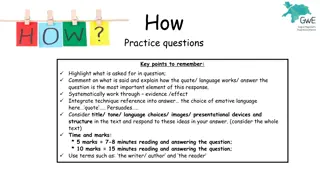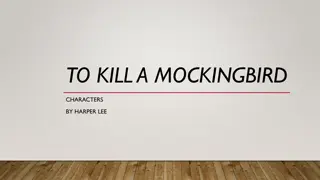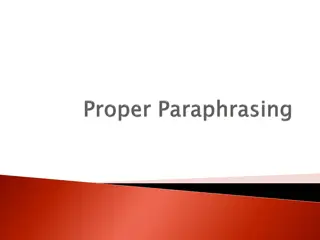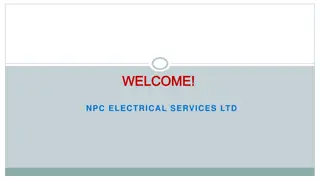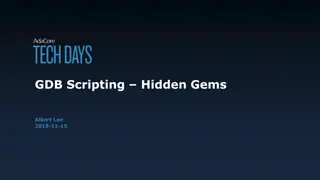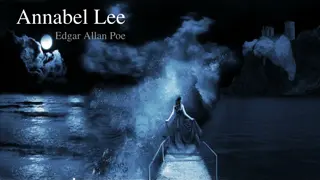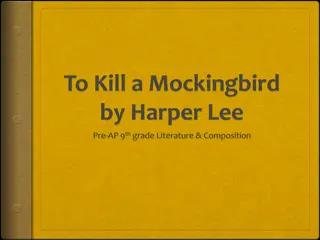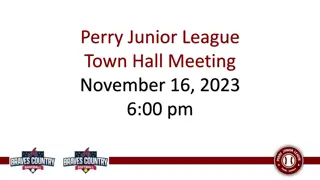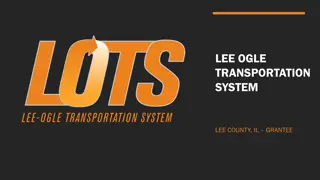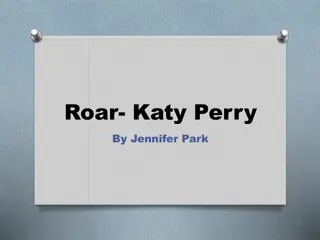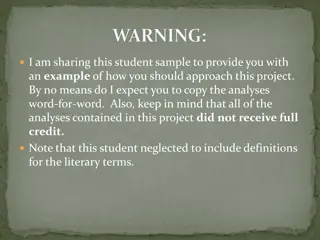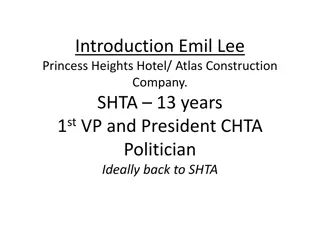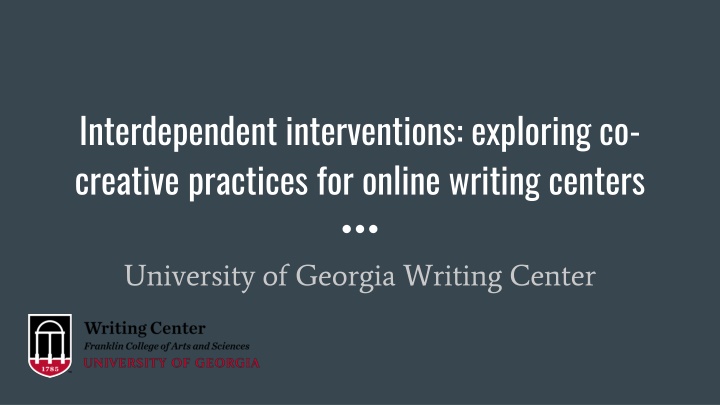
Exploring Co-Creative Practices for Online Writing Centers at University of Georgia
Discover the innovative co-creative strategies used at the University of Georgia Writing Center to support graduate student writers. Learn about the challenges faced, the roundtable discussions, and the importance of evaluating consulting practices for encouraging diversity. Join the conversation on interdependence in writing support services.
Download Presentation

Please find below an Image/Link to download the presentation.
The content on the website is provided AS IS for your information and personal use only. It may not be sold, licensed, or shared on other websites without obtaining consent from the author. If you encounter any issues during the download, it is possible that the publisher has removed the file from their server.
You are allowed to download the files provided on this website for personal or commercial use, subject to the condition that they are used lawfully. All files are the property of their respective owners.
The content on the website is provided AS IS for your information and personal use only. It may not be sold, licensed, or shared on other websites without obtaining consent from the author.
E N D
Presentation Transcript
Interdependent interventions: exploring co- creative practices for online writing centers University of Georgia Writing Center
Roundtable participants: Emma Catherine Perry - Assistant Director, UGA Writing Center emmacatherineperry@uga.edu Christina Lee - Coordinator and Consultant, GradsWrite Studio (2018-2021) christina.lee26@uga.edu Katy Dwyer - Consultant Megan Fontenot - Consultant Genevieve Guzm n - Consultant
Order of the Day 1. Overview 2. Introductions 3. Questions for roundtable participants 4. Questions for audience 5. Questions from audience and participants
Interdependent interventions: exploring co- creative practices for online writing centers University of Georgia Writing Center
Graduate student writers at UGA There is a lack of writing support for graduate students (Brooks- Gillies et al. 2020) DUE TO DUE TO the belief that graduate students have already learned to write at the level expected (Lawrence and Zawacki 10).
Graduate student writers at UGA During the 2020-2021 school year, 60% of graduate students scheduled multiple appointments. 16% scheduled more than ten.
Interdependence in practice Co-creative strategies used in online appointments: scribing dialogic brainstorming direct correction Co-creative values: flexibility non hierarchical approach
Evaluation of consulting practices Evaluating our own co-creative practices by the expectation that we can encourage diversity by challenging the independent/dependent dichotomy
References Brooks-Gilles, Marilee et al. (2020). Making Do by Making Space: Multidisciplinary Graduate Writing Groups as Spaces Alongside Programmatic and Institutional Places. Graduate Writing Across the Disciplines: Identifying, Teaching, and Supporting. UP of Colorado. Cox, M. (2018). Noticing Language in the Writing Center: Preparing Writing Center Tutors to Support Graduate Multilingual Writers. Re/writing the Center: Pedagogies, Practices, Partnerships to Support Graduate Students in the Writing Center. Utah State UP. Lawrence, S., and Zawacki, T.M. (2018). Introduction: Writing Center Pedagogies and practices Reconsidered for Graduate Student Writers. Re/writing the Center: Pedagogies, Practices, Partnerships to Support Graduate Students in the Writing Center. Utah State UP. Lunsford, A. (1991). Collaboration, Control, and the Idea of a Writing Center. The Writing Center Journal, vol. 12, no. 1. Pp. 3-10. Roets, G., Dermaut, V., Benoot, T., Claes, C., Schiettecat, T., Roose, R., & Vandevelde, S. A. (2020). Critical Analysis of Disability Policy and Practice in Flanders: Toward Differentiated Manifestations of Interdependency. Journal of Policy and Practice in Intellectual Disabilities, vol. 17, no. 2, Pp. 108-115.
Our panelists: Katy Dwyer Megan Fontenot Genevieve Guzm n Please describe your writing center experience and your online writing center experience in particular.
Questions for Roundtable Participants: What is your experience working with graduate students in online appointments? What kinds of writing do they bring in? What kinds of support have they asked you for? Is this similar to or different from the work you do with undergraduate writers?
Questions for Roundtable Participants: What kinds of co-creative techniques have you used with writers? Which ones seemed particularly effective and why? Were there any co-creative techniques that were not effective? How could you tell, and what would you do differently?
Questions for Roundtable Participants: What are the risks of using these co-creative practices with student writers? What are the benefits of using these co-creative practices? How the risks or benefits of these practices different between graduate and undergraduate students?
Questions for Roundtable Participants: How does your experience working with student writers online lend itself to the conference theme of interdependence?
Questions for Roundtable Audience: What has your experience been with using co-creative or co- writing techniques in your centers? Have you noticed similar patterns of high numbers of return appointments among graduate students seeking long term developmental support for writing projects in your centers?
What questions do you have? Emma Catherine Perry - emmacatherineperry@uga.edu Christina Lee - christina.lee26@uga.edu

